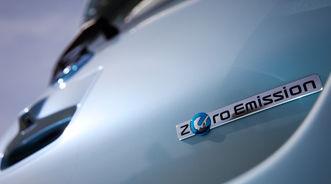Edmunds.com Explores Consumers’ “Range Anxiety” of Electric Vehicles

By subscribing, you agree to receive communications from Auto Remarketing and our partners in accordance with our Privacy Policy. We may share your information with select partners and sponsors who may contact you about their products and services. You may unsubscribe at any time.
SANTA MONICA, Calif. –
Edmunds.com recently conducted its own testing of electric vehicles to mimic a condition consumers might feel called “range anxiety.” The site described the situation as the fear some drivers supposedly have about driving an electric vehicle and ending up stranded with a dead battery.
Analysts wanted to know what this condition could mean as more electric vehicles enter the market.
After commuting in the 2010 Mini E 108 miles round-trip, Edmunds.com’s director of vehicle testing Dan Edmunds reported that “the Mini E’s 100-mile range was frequently on my mind, and may weigh heavily on the minds of those considering an all-electric vehicle.
“Electric vehicles will not be for everyone,” Edmunds added.
However, the site pointed out the experiences of Tom Moloughney, who has driven a Mini E for a 65-mile round-trip commute for 16 months and is the subject of an electric vehicle driver profile Edmunds.com is currently producing. The site reported that Moloughney says the anxiety goes away once you live with the vehicle — and especially once you begin to appreciate the savings in gasoline.
What are the automakers doing to address range anxiety? Edmunds.com noted the efforts of three automakers:
Subscribe to Auto Remarketing to stay informed and stay ahead.
By subscribing, you agree to receive communications from Auto Remarketing and our partners in accordance with our Privacy Policy. We may share your information with select partners and sponsors who may contact you about their products and services. You may unsubscribe at any time.
—As part of its marketing strategy, analysts said General Motors plans to trademark the term “range anxiety” and may use it to tout the advantages of the plug-in hybrid Chevrolet Volt. They believe GM refers to the Volt’s gasoline engine as a “range-extender” that kicks in to recharge the battery after 40 miles of electric driving.
—Edmunds.com mentioned the Nissan LEAF — a less expensive unit that is only electric — has an onboard navigation system that tells drivers if they have enough power for their trips, based on the destination they enter.
—Edmunds.com also found that Coda, an electric vehicle maker based in Santa Monica, Calif., has a “range phobia” tool on its website to show potential buyers that its unit has more than enough range for most everyday driving needs.
“Like it or not, many of us buy vehicles not only to fulfill our actual driving needs, but all our imagined or possible needs, too,” declared Edmunds.com senior consumer advice editor Philip Reed.
“As someone once observed, Americans buy four-wheel-drive SUVs to tow the boat they don’t own up the mountain they never climb,” Reed continued. “It would be fitting if the availability of electric cars helps to shift that perspective to a greener one.”


